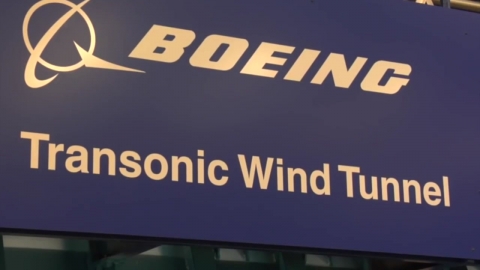■ Starring: incumbent pilot
* The text below may differ from the actual broadcast content, so please check the broadcast for more accurate information. Please specify [YTN Newswide] when quoting.
[Anchor]
This time, we will connect the current pilot and estimate the situation on the site. Sir, is it connected?
[Interview]
Hello,
[Anchor]
It was 9:07 a.m., and so far, the cause of the accident is presumed to be a bird strike collision. If it's a situation caused by a bird collision like this, does it become such a difficult situation to control?
[Interview]
Depending on the size and speed of the bird, it may vary depending on the bird's collision situation. It could get worse like that.
[Anchor]
In fact, the size of a bird is very small compared to the size of the aircraft, but when a bird hits the aircraft, the impact of the weight is actually great, right?
[Interview]
Even if the size of the bird is small, if the small bird goes in and causes problems with other parts of the engine part, leading to a failure of the engine part, it could be a bigger situation as it is now.
[Anchor]
I heard there's a manual for landing where the fuselage falls. Where do you think the reason why it crashed to the wall when it fell?
[Interview]
There is a training program recommended by the aircraft manufacturer for the process of landing the fuselage, and the airline actually trains it like that. In the event of such a fuselage landing at the airport, they are required to have facilities and equipment that can brake without a large explosion or fire at a short distance. I don't know what it's like, but if you look at the video, the foam and foam that we usually talk about are installed to prevent fire or reduce impact, but considering that we got off now without any of that, we should consider reviewing the latest facilities, equipment, or various procedures that are being recommended.
[Anchor]
First of all, the pilot tried to land the fuselage at the time, so what about the route to another airport by detouring without landing?
[Interview]
That's also something you can think about. If I had time to go back and move around in the air, I wonder what it would have been like to think about an airport with longer facilities and more equipment at another airport during that time. But it's hard to say what's right without knowing exactly what the specific data is. I think the pilot made the best choice by contacting the controller and the airline in it.
[Anchor]
So there have been many cases of Bird Strike accidents, precedents, and what happens to the manual as a pilot if the bird impacts the engine and the landing gear doesn't work?
[Interview]
If the landing gear doesn't work, it's supposed to switch to the fuselage landing procedure as it is now. So, when you land on the fuselage, there is a procedure for how the pilot controls the aircraft because of the impact on the aircraft, and then the passengers are guided to take a position to prevent the impact before landing.
[Anchor]
But wasn't there a reverse propulsion system? So after landing on the fuselage, the speed didn't slow down until it hit the wall. Is there no control other than landing gear in this area?
[Interview]
I also felt a bit disappointed when I saw that. There is a ground spoiler that reduces speed by causing air resistance by the panel coming up behind the main gear wings. As you just mentioned, there is a reverse propulsion system that makes the thrust of the engine run in the reverse direction. But I know from the video, but I already saw a foreign object falling from one side of the engine in the air, so it is expected that there was a problem with using an engine reverse.
Then, since the landing gear is not lowered, the landing gear brake only has the main gear, but anyway, it was grounded without lowering the landing gear, so the only thing that can be operated as a brake system is ground spoiler, and it is expected that the system or those who investigate the accident will check whether it is turned on or not.
[Anchor]
It appears on the screen now, but there seems to be a problem from the time the plane is in the air. Was this running out of time to recover or deal with?
[Interview]
If there was enough fuel and enough time at that time, I would have thought about restoration procedures above or something else, but I think there is a high possibility that the landing gear was not recovered for now through the given procedure. In that situation, it is expected that the choice was made because there were a combination of fuel problems and other problems.
[Anchor]
When I connected to the National Fire Agency earlier, I said that there must have been a problem with weather conditions and abnormal weather conditions. From your point of view, do you think that the weather conditions include algae in the weather conditions, or do you think there are other reasons?
[Interview]
When we often talk about it, we don't say it's weather conditions with currents.
[Anchor]
What other conditions do you see?
[Interview]
From what appears to be a video rather than a weather condition there, it seems that the part where something falls from the engine part in the air caused the defect. The defect has become a situation where it has no choice but to make a fuselage landing without recovering, and I think it was because there were some complicated factors in the process of making the fuselage landing.
[Anchor]
Have you landed or landed at Muan Airport?
[Interview]
I've never been there.
[Anchor]
However, since the runway of Muan Airport itself is smaller than other airports, some point out that. What do you think about that?
[Interview]
When an aircraft is launched in the first place, it is calculated according to the width, length, or performance of the airport's runway, so even if the Muan Airport facilities are smaller than other Incheon International Airport or other large airports, there is no calculation problem with the class-appropriate aircraft.
[Anchor]
Have you ever operated a model, Boeing 737-800. This model is said to be 15 years old, but do you think there was no problem with the model?
[Interview]
I don't think the issue of the airplane's spirit actually means much. After a certain period of time, you are supposed to write a certain number of hours or change parts after a certain period of time, according to the legal regulations. So just because the aircraft is 20 years old doesn't mean it's 20 years old overall, but if there's actually a problem with the spirit, it doesn't matter if it's not a problem like Hawaii Airlines in the past.
[Anchor]
Can't you only operate on the other side if the aircraft has a problem with one of the engines due to a tidal current collision?
[Interview]
You know, there's actually a procedure for flying when an engine dies. Don't you know of cases where many aircraft landed safely in Korea?
[Anchor]
Witness testimony shows that the aircraft flew low and caught fire on the wing side. There are stories like this, but are there any other defects and causes other than landing gear malfunctions that can be estimated?
[Interview]
If you suddenly go to a normal place, there may be a defect because it's a machine. That's a problem that experts can only know by inspecting the engine. First of all, what is estimated from the video is that if something foreign falls from the engine, you should investigate whether it fell due to a mechanical defect or which part fell from the inside due to a bird collision.
[Anchor]
I think we need to investigate further, but if it hit the landing gear and caused mechanical damage, could there be a problem with the hydraulic system or the electrical system?
[Interview]
That's right. Making hydraulic pressure is actually an engine. So there could be a breakdown in the wiring or pipeline process that creates the hydraulic pressure in the engine, or the central motor that makes it, and we don't know if that's caused by a bird strike or if the mechanical defect looked like an OB-I-LOCK at the time.
[Anchor]
When we explained the video while connecting with experts earlier, the front part of the aircraft floats when the aircraft makes a fuselage landing on the runway and attempts to make a fuselage landing only at the rear, so the pilot speculated that this might be a movement to use the braking system as much as possible under certain minimum conditions. What do you think from the pilot's point of view, actually?
[Interview]
I think the pilot made an effort to minimize the impact while landing the fuselage. However, the video shows that the nose is held until it hits the outer wall. So what was unfortunate was that instead of waiting for the speed to decrease aerodynamically, I personally thought about reducing the speed by maximizing friction by forcing the nozzle to ground the runway early. There is such a thing, but I don't think it's right to say that this is better with a normal mind on the ground that the pilot is doing his best in an inexperienced and urgent situation.
[Anchor]
Are there any manuals or training among pilots to prepare for bird collisions or flocks these days?
[Interview]
There are procedures that allow pilots to train and do manuals to avoid bird strikes when they are visible or in cooperation with the control tower to delay takeoff when bird movements are visible, or to avoid birds when experienced in flight. There are also procedures for airport authorities and aviation associations to investigate and warn and predict migratory birds' movements and routes.
But as you know, they can always predict life's movements and warn you everything. Bird strikes are one of the most common accidents around the world right now.
[Anchor]
Do you think the risk of accidents caused by bird strikes and bird collisions has increased a little compared to the past while actually controlling?
[Interview]
I don't think so. What can be said to be safer than in the past is that the system and alarm system are developed, but the number of flights is higher than in the past, right? As there are many airlines and many airplanes, the probability of colliding with birds has increased relatively probabilistically.
[Anchor]
In terms of this accident, if there are any characteristics or regrets that the pilot saw in person, what would be the case?
[Interview]
Well, unpredictable accidents happen at any time and under any circumstances, and I'm sure you've done your best to prevent them and to deal with them. Anyway, I think it's not important to deal with this accident while looking at it, but to find the parts that contributed to the accident even if it was small so that it wouldn't be repeated. So, we don't just look at the facts of the accident and interpret it, but when we talked about safety in the past, we talk a lot about the Swiss Zurich theory.
Small things are drilled and eventually lead to a big accident, but I think it's important to find a procedure to close the small hole. Rather than focusing on the accident, the pilots' fly patterns show that the original schedule was supposed to drop off at 8:30 a.m. at Muan Airport at 1 a.m. yesterday. In order to fly like that, they would have taken out early last night to prepare for the flight and went to work before the flight. Then, at 9 o'clock in the morning, I'm staying up all night.
It's not just staying up all night, but if the schedule pattern is like that every time, it will be necessary to review whether their fatigue has been properly managed. And then when the aircraft is defective and looks like that, there are some regrets about the prevention facility just by looking at it now. No matter how small an airport is, it will be big once an accident occurs, so I hope you take this opportunity to actively invest in it or consider facilities even if it costs money.
[Anchor]
We were talking about problems and disappointing parts of various procedures, but it was impossible to land normally, so there are stories that we tried to re-land again by going around. In the process of attempting a re-landing, was there no room to share signals with the control tower?
[Interview]
I'm sure there is. You need permission from the control tower to re-land it, so you keep in touch with the control tower from the process of re-launching it.
[Anchor]
Is there anything else that can be done in the control tower or on the airport side at that time?
[Interview]
It depends on the condition of the aircraft. Depending on how much fuel there is and how the weather is, we can make a recommendation that we go to the airport where there are no emergency facilities, no medical facilities, and there are medical facilities. However, I think that not only the control tower but also the aircraft will be in the system to start reviewing as soon as such a problem arises.
[Anchor]
It was an emergency, so you still think you contacted the control tower and took action, right?
[Interview]
I can't help but communicate with the control tower. You have to do that to get permission to land next.
[Anchor]
The bird strike problem continues to be pointed out, but the expert said that it cannot compensate for the design problem of the aircraft. Is there anything you're disappointed about that? Can't the aircraft have a design complement to prevent bud strikes?
[Interview]
As you know, even if the radar detects it, the expected path is long or the range is set, and there is no time to avoid it even if the radar detects it when the bird comes in the middle. So you would have said it was impossible by design.
[Anchor]
If you look at this, the aircraft landed on the fuselage and hit the wall, and only the tail remains. The front part was almost damaged and separated, what do you think is the biggest cause of this? of aircraft damage
[Interview]
It collided with the outer wall without speed processing. There's no other way.
[Anchor]
Two rescuers have been found in the rear only.
[Interview]
If you look at this accident, the situation of this accident is that the outer wall and the front collided while sliding on the ground. So, even though the person sitting far from the collision site was doing a good job in the anti-shock position, the aircraft was burned down because of the shock. It was difficult to survive because it exploded during the collision, but I think the combination of young and healthy people and good anti-shock posture helped them survive.
[Anchor]
When we get on an aircraft, we learn how to act in an emergency. It's something that happened in a very instant that we can't even do.
[Interview]
That's right. No matter what position you take when you collide, the collision is so big that the aircraft explodes and burns down in an instant, so there's no way. You should have stopped that situation before you went.
[Anchor]
If you look around, there was a road behind the wall. According to a report from the residents of the site. Then, there was no control over the accident, but what do you think about the response after the accident?
[Interview]
It's hard for me to say anything about the response after the accident because I saw the news as a short piece, but the stakeholders in the field seem to have done their best.
[Anchor]
I see. That's all for today's talk. So far, I've connected an incumbent pilot and heard about the situation at the time and the defect in the aircraft. Thank you. Can I just say
[Interview]
? I just want to say that I would like to offer a boring consolation to everyone who is struggling with this anyway, as a person in the aviation industry.
※ 'Your report becomes news'
[Kakao Talk] YTN Search and Add Channel
[Phone] 02-398-8585
[Mail] social@ytn. co. kr
[Copyright holder (c) YTN Unauthorized reproduction, redistribution and use of AI data prohibited]
Society
More- A memorial procession for the Jeju Air disaster...At this time, the joint memorial altar.
- [Chatting] My husband who strangled me when I notified him of "divorce after bullying my mother-in-law"..."I'm going to set fire to my friendship".
- President Yoon's arrest warrant for over 30 hours was heard...Court 'Consideration'
- [YTN Live News] Did I grow concrete hillside?a continuation of controversy

![[Weather] On the last day of this year, it's mostly sunny across the country...You can enjoy the sunset.](https://image.ytn.co.kr/general/jpg/2024/1231/202412310732583563_h.jpg)







